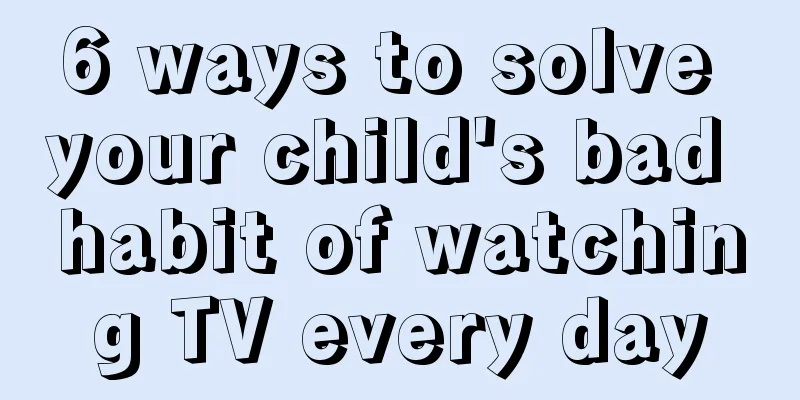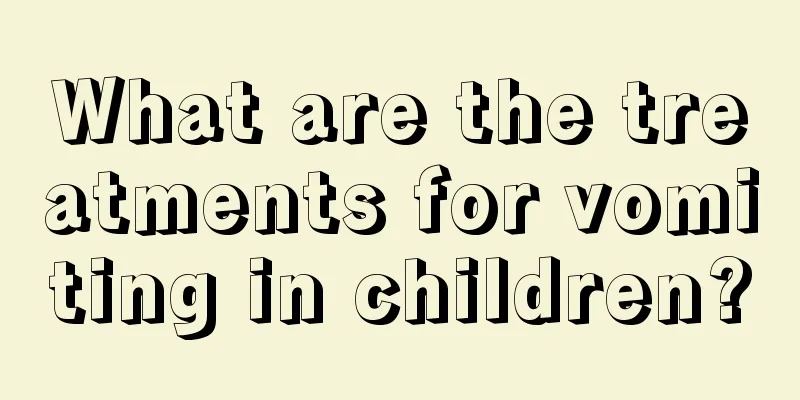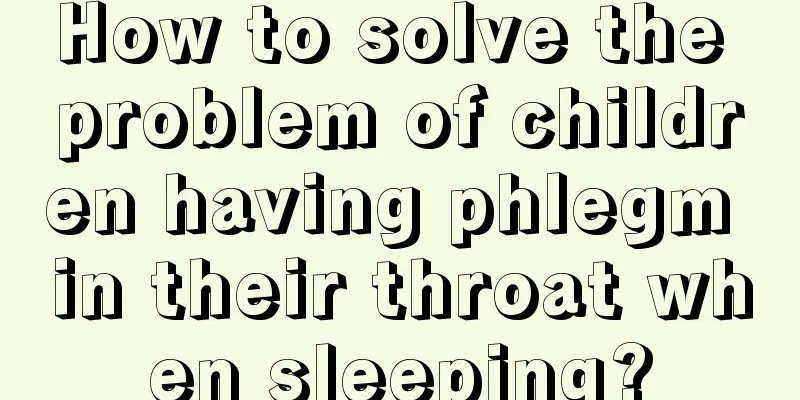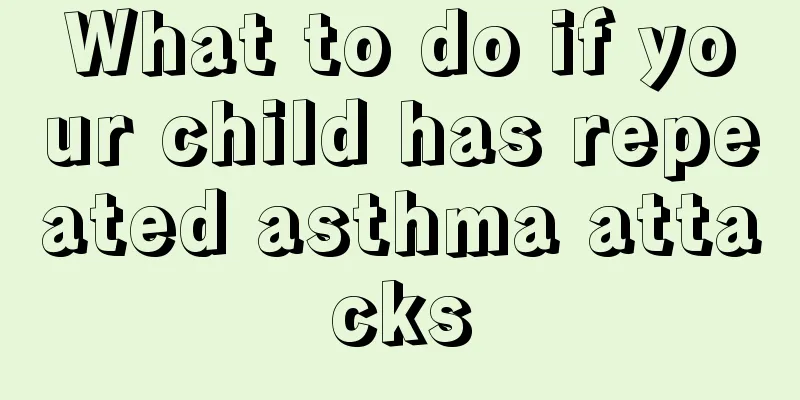Child's facial hyperactivity

|
If a child has facial hyperactivity, the child's face will not be under his/her control and he/she will make some facial expressions. This situation is already a serious case of ADHD, so parents must pay attention to their children, conduct timely examinations and treatments, and never let their children's ADHD delay their children's lives. So how should children with facial hyperactivity be treated? Attention deficit, hyperactivity and impulsivity are the three core symptoms of the disease. Most children's symptoms may persist into adolescence, and some children may persist into adulthood. Hyperactivity and impulsivity may gradually alleviate as the children grow older, while attention deficit problems become more prominent with age. 1. Attention deficit: Children with this condition have difficulty concentrating and often have difficulty maintaining attention for a long period of time to engage in an activity or task. According to the requirements for attention disorder symptoms in the diagnosis of this disease set by the World Health Organization, at least 6 of the following symptoms must be met and last for at least 6 months, reaching the level of maladaptation and being disproportionate to the developmental level. ① In study, work or other activities, you often do not pay attention to details and easily make mistakes due to carelessness. ② It is often difficult to maintain concentration during learning or gaming activities. ③ Lack of concentration (often absent-minded when speaking, as if listening but not really listening). ④ Often fails to follow instructions to complete homework, daily chores, or work (not due to oppositional behavior or lack of understanding). ⑤ Often has difficulty completing organized, sequential tasks or other activities. ⑥ Do not like or are unwilling to do things that require sustained energy (such as homework or housework), and often try to avoid them. ⑦ Often lose things necessary for study and activities (such as toys, textbooks, pencils, books or tools, etc.). ⑧Easily distracted by external stimuli. ⑨ Often lose things in daily activities. 2. Hyperactivity: This is usually the main concern of parents. The main manifestation is excessive activity and inability to stay still at any time. According to the requirements for ADHD symptoms in the diagnosis of this disease set by the World Health Organization, at least 3 of the following symptoms must be met and last for at least 6 months, reaching the level of maladaptation and being disproportionate to the developmental level. ① Often feel restless and frequently move hands or feet. ②Leaving your seat when required to remain seated. ③ Often running in inappropriate occasions. ④It is difficult to participate in group activities quietly. ⑤Exhibit persistent excessive exercise. 3. Impulsiveness: Children tend to act impulsively, behave rashly, act on impulse, are impatient, irritable, and easily angered. This is related to their poor self-control, willfulness, weak will, poor tolerance, impatience when faced with difficulties, and emotional instability. According to the requirements for impulsive symptoms in the diagnosis of this disease established by the World Health Organization, at least 2 of the following symptoms must be present and last for at least 6 months, reaching a level of maladaptation and being disproportionate to the developmental level. ① The answer often comes out before the question is completed. ② Often cannot queue up and wait in order during games or organized situations. ③ Frequently disturbing or interfering with others (such as interrupting other people’s conversations or games). ④ Often talk too much and fail to respond appropriately to social rules. This disease needs to be differentiated from normal children's increased activity, character disorders, tic disorders, mental retardation, manic episodes, etc. |
<<: Six-year-old child with ADHD
>>: What medicine is good for children with fever?
Recommend
Three-month-old baby's ribs are everted
Children must be supplemented with various nutrie...
What materials are used for children’s dental fillings?
Many children have unhealthy teeth since childhoo...
How to treat spleen and stomach deficiency in a 6-year-old child?
Although people's quality of life is graduall...
Why does the baby fart so hard?
Farting is a normal physiological phenomenon that...
What material is good for baby bottles
When choosing baby products, parents will pay spe...
What are the causes of muscular dystrophy in children?
I believe everyone knows about muscular atrophy a...
What should I do if my baby has phlegm in his throat?
It is very common to have phlegm in the throat. T...
What should I do if my child has a cough and fever?
Some children have problems with coughing and fev...
What methods can quickly treat baby's cough?
Modern people will encounter this problem, why th...
Treatment of eye mucus in babies
Every life begins as a baby. I believe that for p...
Newborn baby's lips are blistered_What medicine should be used for children's lips blisters
Parents found a layer of blisters around their ba...
What are the adverse reactions to the measles-mumps-rubella vaccine?
Children's immunity is relatively weak when t...
What should I do if my baby always sweats while sleeping?
Many mothers will find that their babies always s...
Why is the baby's ear discharge yellow water?
After the baby is born, if there are any abnormal...
Is herpes virus contagious in children?
Children's physical resistance is relatively ...









